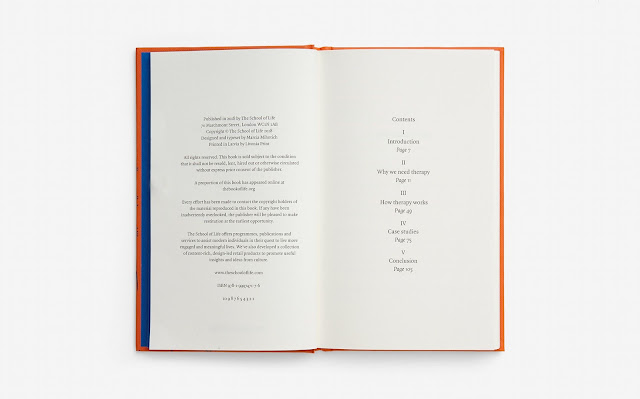What is Psychotherapy? By The School of Life
“Psychotherapy is a tool; like all tools, it has been designed to help us overcome an inborn weakness and to extend our capacities beyond those with which nature originally endowed us.”
WHAT IS PSYCHOTHERAPY?
I've spent the past three years engaged in some form of therapy, whether that's individual therapy with a psychologist, or in a group setting using tools like DBT, CBT, or just attending regular support groups. My most recent encounter with a psychologist was probably the most difficult to date, in that I had this immense fear before stepping into his office, and I would suffer pangs of anxiety days in advance of our appointments. Sometimes I wouldn't even make it there, cancelling a few days ahead, using some silly excuse. Going into those sessions, I felt challenged, I felt judged, and I felt anxious. It wasn't until much later that I realized all of those feelings were internal. My therapist was challenging me, and perhaps his challenges were leading me to feel anxious because it meant stepping outside of my comfort zone, but he was not in any way judging me. I was judging myself. And because I was judging myself, I was holding back, afraid to share what was really going on for me. Which, in reality, made therapy absolutely pointless.
I recently picked up a copy of What Is Psychotherapy? at Elysian Coffee Roasters in Vancouver, with the hope that I could begin to truly understand therapy, and how it could truly help me to move forward. Because although it's easy to say that “I go to therapy,” I struggle with actually knowing what therapy is.
So that leads me to the most important question, what is psychotherapy?
This little orange book is a deep well of information, and it opens with an introduction that states, “psychotherapy is one of the most valuable inventions of the last one hundred years, with an exceptional power to raise our levels of emotional well-being, improve our relationships, redeem the atmosphere in our families and assist us in mining our professional potential.”
What is psychotherapy? jumps into why we need therapy, and puts our needs down to what happened in our pasts. I found a section called 'Amnesia and denial' to be extremely helpful, meeting me where I'm at, at this particular point of my life. This section details that what happened to us in our childhoods is the single greatest cause of how we function as adults. “Therefore what is surprising and unfortunate is how little of the past we can properly remember.”
I've always found this concept of amnesia to be fascinating. How we can vividly remember particular moments in our childhood, but block out those that don't serve us.
The book also dives deep into the markers of emotional health, using four pillars to identify and assess how badly we have been marked in our early years. The pillars are self-love, candour, communication, and trust. I found this part extremely helpful, especially the section on self-love. This part of the book concludes with “it isn't our fault (or, in a sense, anyone else's).”
My key takeaway from this chapter was that self-love is the one quality that determines how much we can be friends with ourselves and remain our own side. I have a lot of work to do in this area, and appreciated the book bringing it to the forefront of my mind.
The most important chapter in the book, and the one that resonated with me the most was How Therapy Works.
What is psychotherapy? states that therapy is an invention to help improve the way our emotions operate. As is obvious from my intro to this post, I have a fraught relationship with therapy. Mostly, I don't know how it works. I had been paying my therapist for months before I realized it wasn't actually changing anything in my life. The only upside was that I could tell those around me, “I'm in therapy, I'm working through my problems.” Truth is, I had no idea what I was doing.
The book talks in deep detail about how beneficial therapy is and in what ways that it really can help. Our therapists are there to help us, and being with them is an opportunity to talk about anything we want. “They know that inside every adult remains a child," continuing, "They appreciate that this child has to get to know itself again and will want to be heard, perhaps through tears of incomprehensible mutterings, which might be at odds with the surface maturity and self-command normally associated with grown-ups.”
This chapter was absolutely awe-dropping for me, and I took so much away from it, that I now plan to approach my next therapy appointments with a new therapist, in an entirely different way.
What follows are a series of relatable case studies, and a conclusion that talks about our suspicions of therapy and how therapy might change us.
I didn't think it at first, but now that I've finished, I think this book has the power to change how I see my life, and within it is an abundance of advice that will help me to see therapy through an entirely different lens. For that, I am so grateful.
About The School of Life
The School of Life is an organization built to help us find calm, self-understanding, resilience and connection - especially during troubled times. They place an emphasis on the need to understand ourselves better, so that we can secure serenity and make optimally reliable decisions, particularly around love and work.



